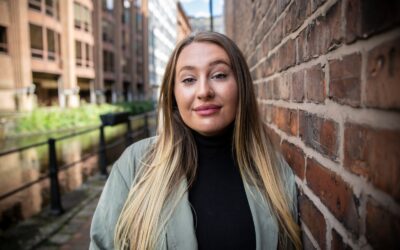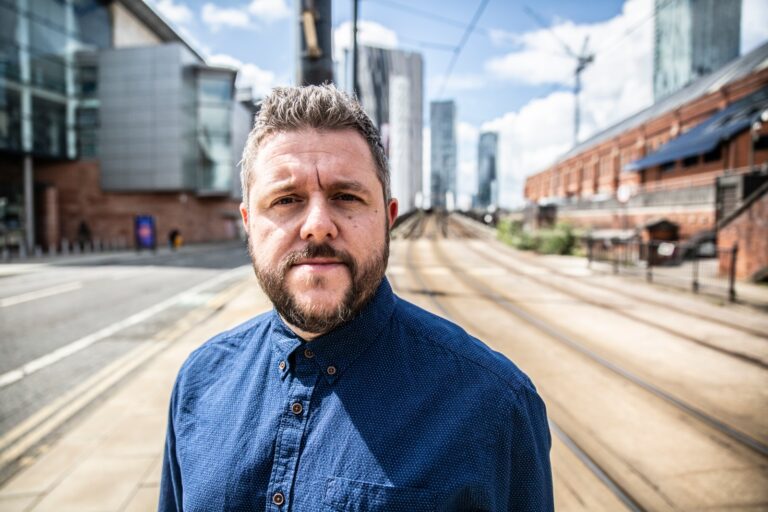Lee Benecke, Digital and Content Strategy Director at Manifest, challenges the elitist nature of our creative industries and asks how can we help those from non-upper class backgrounds explore career options in marketing and communications.
Growing up on a council estate in Bradford, my interest in the creative industries was not shared by my friends and classmates. I was the only member of my family to even consider higher education an option and career-wise I was more likely to be offered routes out of education than encouraged to consider journalism and marketing as likely destinations. Luckily I found people who helped. I was nurtured by one teacher who shared her passion for communication studies with me and supportive parents who indulged my fascination with the Media Museum in the city and any book or magazine I could get my hands on.
I was lucky to have that but many are not. Even in today’s digital-driven world, where media consumption is basically a pastime for millions of people, advertising as a profession is elitist – a playground for the chosen few who can afford to go to university or further education, work for free and ‘play’ for a living.
Now don’t get me wrong. The advertising industry has made great progress towards tackling issues surrounding diversity and inclusion. The work done by groups and individuals in tackling the representation of gender and ethnicity continues to be crucial in making a real impact on how we work today and in a better industry tomorrow.
At Manifest, we continue to push on the communications industry to be both inclusive and open. Working with BME Pros founder Elizabeth Bananuka, we were the first agency in the UK to secure Blueprint status, a mark to promote racial diversity in the communications industry. Our own Strategy Partner Julian Obubo guest-edited a special edition of PR Week called ‘Making PR Anti-Racist’ and our own diversity and inclusion charter is being rolled out internally.
However, we’ve got a long way to go – as an agency and across the industry. Creative industries on the whole still overlook socio-economic inclusion. According to the IPA, only 15% of the industry comes from working class backgrounds and people from privileged backgrounds are between four and five times more likely to be advertising, marketing or sales directors in the future. Awareness that our industry is open to all, better education on options within creative industries, open access to networking opportunities and jobs, and the opportunity to progress. These are the issues we need to address and in doing so we accept social diversity is critical if we’re going to continue to thrive in terms of growth, creativity, and effectiveness. Luckily there are solutions.
Understand The Opportunity
This conversation is not about saving the working classes. It’s not about upward mobility but the opportunity opening up the doors offers our industry. It’s saving our industry from tunnel vision and the lack of ‘collective genius’ that can only come from diverse teams, thoughts and processes. Once we understand that we see inclusion is not a bonus but imperative. Without it, full innovation cannot be achieved and agencies nor brands will not flourish to their full potential.
Advertise Advertising
To increase entry opportunities, we need to advertise our industry and ensure that high school students from less privileged backgrounds are exposed to the industry at an early age and understand this could be a path for them. Creative Equals and the IPA Advertising Unlocked Programme are making strong moves to ensure this happens whilst groups such as the Ideas Foundation charity are working to integrate advertising into the English curriculum. Having mentored within these groups, I have found them extremely valuable for both giving back to the industry and connecting with high school students considering advertising, marketing or journalism. Join them in their work and start promoting routes into industry.
Travel Further
London and Manchester are the creative hubs of the UK. They are also huge socio-economic melting points that represent the full spectrum of culture in the UK. First and foremost, these cities need to look to the borders of their own cities and understand that you can make an impact on your own doorstep. However, it’s not about creating city monopolies either. For those people who cannot afford or who do not want to move into these cities to pursue opportunities, we have to consider opening up to new locations. Cities such as Leeds, Newcastle and Sheffield represent amazing people, groundbreaking agencies and brands innovating in their own field. These cities are connectors to other smaller urban and rural communities that house talent, diverse views and creativity.
Network Deeper
The industry has been built on a culture of ‘who you know’ and we know a high level of marketers enter the industry through existing contacts. Working class young people tend not to have such a network and as a result are excluded from entering the industry. Brixton Finishing School research found that 78% of students felt that not having a network limited their ability to gain employment within the creative industry. We work with specific networks such as Evenbreak and Diversifying to ensure our recruitment process is diverse and open to everyone. Mentoring programmes for working class young people could additionally offer networking opportunities for those who are not born with them.
Join The Change
Creating the right culture is critical to ensuring that those from working class backgrounds feel that they are able to be themselves and bring their best to the workplace. Common People, a group started by IPG’s Jed Hallam, aims to reduce barriers to entry for individuals from less privileged backgrounds, assist career development and create a space where such individuals can share their career journeys as a source of inspiration. As a member of the group myself, I see the potential in such a project as both a support network for me and a connector for new people looking to enter the marketing world.
As we emerge from COVID-19, ‘the biggest threat to the UK’s cultural infrastructure, institutions and workforce in a generation’, we must consider how our economic potential can be rebuilt, providing creative opportunities and occupations for the better, in a way that benefits more people and places – as well as the creative industries and the quality of work it produces.











